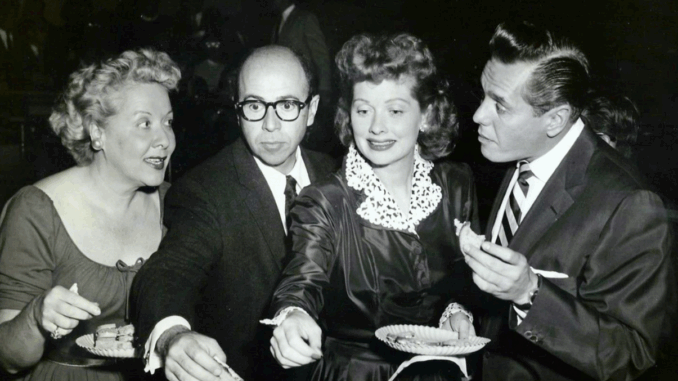
In the history of American television, few characters stand out as boldly as Lucy Ricardo in I Love Lucy. When the show premiered in 1951, it quickly captured the hearts of millions, but beyond the laughter, Lucy became a surprising voice for women in an era of rigid gender roles.
Lucille Ball was not only the star of the show but also the co-founder of Desilu Productions, one of the first women to take control both in front of and behind the camera. At a time when women were expected to stay home, Ball’s dual role as performer and producer was revolutionary. On screen, Lucy Ricardo constantly tried to break free from the limitations of being just a housewife, concocting wild schemes to find her independence—whether by sneaking into her husband Ricky’s nightclub act or attempting to get a job of her own.
Although Lucy’s escapades almost always ended in chaos, her rebellion struck a chord. Viewers laughed, but they also saw a woman who refused to be confined. Without explicitly preaching, Lucy Ricardo questioned why women were expected to stay in one box.
Seventy years later, Lucy Ricardo remains a symbol of resilience, humor, and determination. The character paved the way for countless female leads who could be funny, flawed, and fiercely independent.